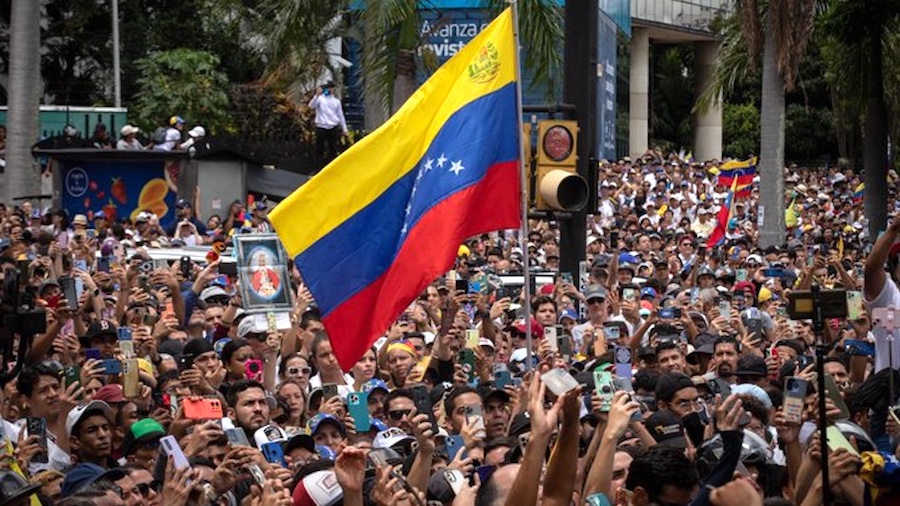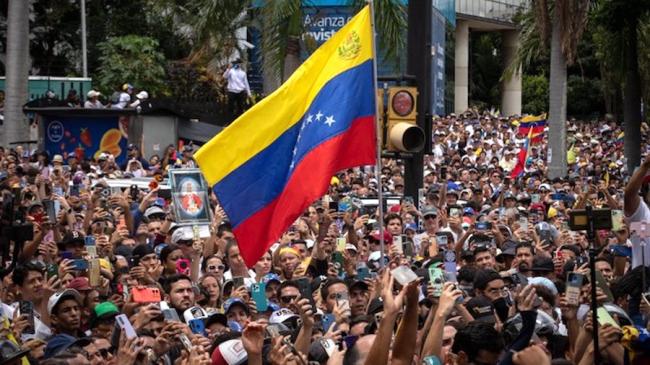The regimes of Cuba and Venezuela comprise what we could term Latin America's “extreme left.” Internally, they share several similarities, such as a disdain for democracy and an excessive attachment to power. Externally, meanwhile, they share an animosity towards the United States Government, as well as a willingness to serve as pawns of the Kremlin's geopolitics. Notwithstanding the foregoing, it is possible to note important differences between the political systems of Havana and Caracas.
In Venezuela, despite its heavy-handed government, participation channels remain open to civil society. El chavismo never managed to destroy all the practices and institutions of representative democracy, such as the press and opposition political parties, and it society has devised no other way of organizing itself than through the direct election of the nation's highest political office, Western-style. Sometimes, however, as in the most recent presidential election, it does so in a process fraught with irregularities (or fraud, as a good part of the international community believes) that ended up proclaiming the re-election of President Nicolás Maduro. Thus, we are witnessing an authoritarian system of government in the South American nation.
In Cuba, once the bearded men of the Sierra Maestra took over political power in the nation, they not only went about demolishing existing institutions in order to build others mediating the relationship between the powerful State and the masses. Here the heavy-handed government operated more based on a theoretical and ideological framework than to casuistic or conjunctural factors. Spaces for participation by civil society were restricted or eliminated, and the authorities strove to brainwash citizens in an operation in which the concepts of democracy and freedom were replaced with utilitarian slogans. Castroism ended up transforming democratic legitimacy into revolutionary legitimacy. As it is, today what we have is a totalitarian system of government on this Caribbean island.
Some specialists, applying a criterion of generalization, tend to categorize right-wing dictatorships as authoritarian while classing left-wing dictatorships as totalitarian states.
In this regard, they often take into account the rulers' criteria regarding the temporal limits of their regimes. Two right-wing dictators, Augusto Pinochet and Fulgencio Batista, were convinced - or circumstances forced them to conclude - that their rules could be limited. We should recall the plebiscite that Pinochet allowed, which ultimately gave way to democracy in Chile, and the fact that Batista was poised to abandon power in February 1959 to make way for the presidency of Andrés Rivero Agüero. In contrast, left-wing dictators, in general, never conceive of abandoning power. History comes to a standstill when they entrench themselves in government palaces.
And, in what is a paradox of political praxis, despite being the least despotic, authoritarian states are generally viewed as the most repressive. Since their participatory channels are preserved, citizens take advantage of them to channel their disagreements through criticism, strikes and demonstrations, though, of course, these can be met with censorship, repression and imprisonment.
In totalitarian states, although history shows us that when they see their system in danger they do not hesitate to mercilessly open fire on the masses, or roll out the tanks , in general, one generation succeeds the other oblivious to the right to dissent, while an eerie tranquility prevails that resembles the peace of a graveyard. Hence, it is customary to call Pinochet and Batista "dictators," while a milder title is used for Fidel Castro.
We do not doubt that, internally, Nicolás Maduro wishes to change the authoritarian characteristics of his government and turn Venezuela into a kind of private estate under a totalitarian regime. And we are even more certain that Castroism hopes that its cronies in Caracas will achieve this frightening objective.
However, one thing is that the ruling elites of both regimes think, and quite another is what the combative people of Venezuela do, as they have demonstrated their willingness to fight for democracy in the streets of their country.

